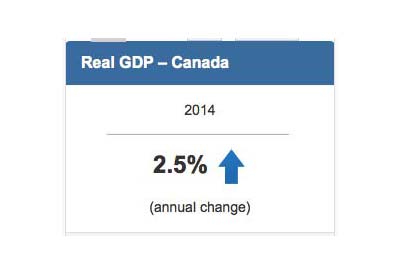Study Measures Digital Intensity and Its Impact on the Canadian Economy

Feb 25, 2021
Adoption of digital technologies by Canadian industries is associated with higher labour productivity growth and greater resilience to the economic impacts of the COVID-19 pandemic. From 2002 to 2019, labour productivity grew 22.1% in digitally intensive sectors — more than three times higher than in non-digitally intensive sectors.
Over the past two decades, Canada has embraced digital technologies at an unprecedented pace and breadth as businesses and individuals have relied increasingly on digital products and services. Two articles released in Economic and Social Reports provide results from a new composite index developed by Statistics Canada researchers to provide a comprehensive measure of digitalization so that its impact on the Canadian economy can be better analyzed and understood.
The articles released use the index to describe the intensity of digitalization in Canadian industries, as well as to measure and compare the economic performance between sectors in which digital inputs have been used more intensively in the production process and those in which they have not.
High but uneven growth of digital intensification across industries
The final composite index suggests that Canada’s economy-wide digital intensity increased continually from 2000 to 2015, growing by more than 60% across industries. However, this intensification of digitalization has been uneven across industries. Digital intensity in some industries was high at the beginning of the sample period and grew markedly over time. These industries were
• information services
• telecommunications
• professional, scientific and technical services
• machinery, computer and electronic product manufacturing
• transportation equipment manufacturing
The digital intensity of other industries such as agriculture, mining and construction, as well as most manufacturing and transportation industries, was low in the beginning and increased slightly over the period.
The composite index can also be used to rank industries based on their digital intensities. A digitally intensive sector can be defined as having an intensity within the top quartile. For the period from 2013 to 2015, the digitally intensive sectors were utilities; plastics and rubber products; primary metal manufacturing; machinery manufacturing; computer and electronic product manufacturing; transportation equipment manufacturing; pipeline transportation; publishing and data processing; broadcasting and telecommunications; and professional, scientific and technical services. In contrast, agriculture, construction, food product manufacturing, and accommodation and food services were ranked among the least digitally intensive industries.
This characterization of digitally intensive sectors provides a useful tool for future studies on the effects of digitalization on the economy and quality of life that will help inform and measure the impact of policy.
Source: Statistics Canada, www150.statcan.gc.ca/n1/daily-quotidien/210224/dq210224c-eng.htm
Photo by Jerome Granados on Unsplash











